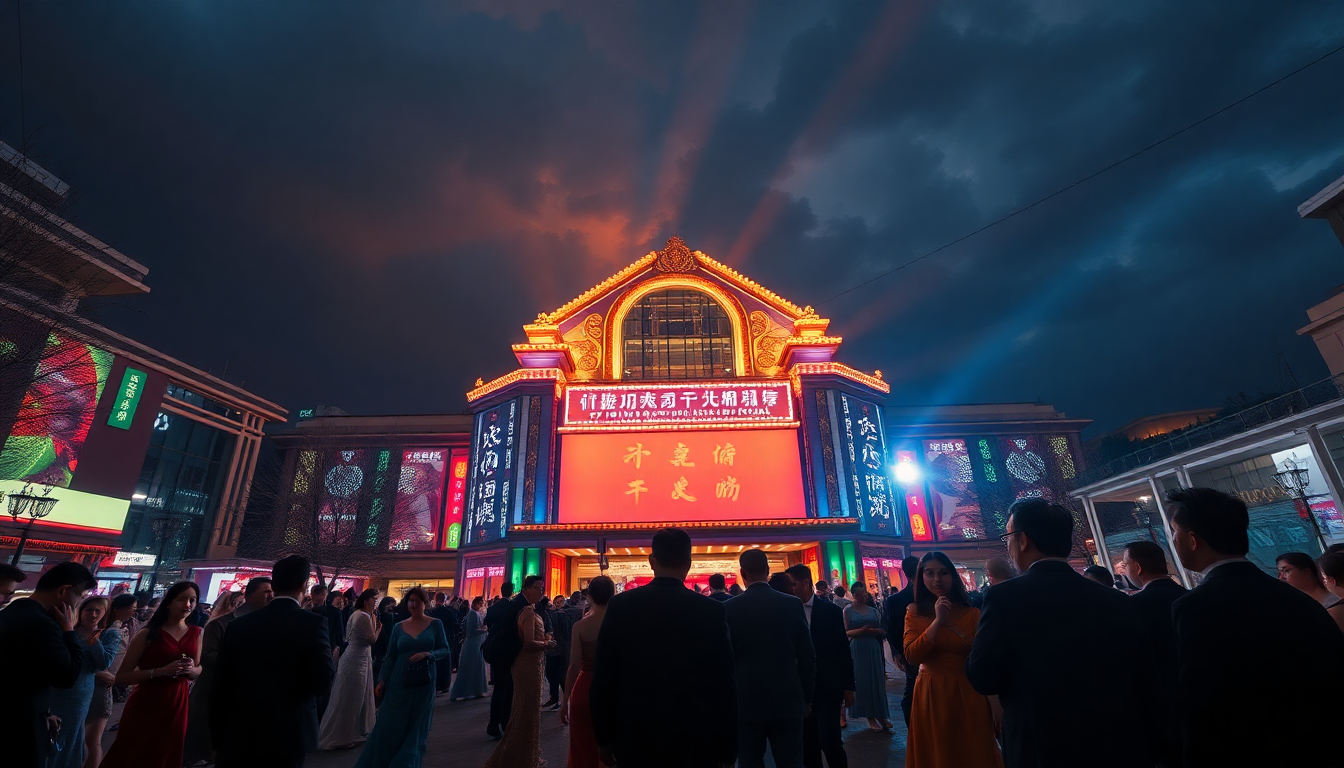Table of Contents
As the curtain rises on the 27th Shanghai International Film Festival, one can’t help but notice the glaring contrast between the dazzling lights of the Grand Theatre and the dark clouds of conflict looming over the world. Here we are, in a city where dreams are spun from celluloid, while elsewhere, chaos reigns supreme. Is it any wonder that the stars gathered here seem to shine a little brighter, as if to mock the turmoil that surrounds us?
The opening gala: a spectacle of stars
The festival kicked off with a gala event that was nothing short of spectacular. An orchestral performance accompanied by a children’s choir set the tone for an evening that promised glamour and grace. Among those gracing the red carpet were the cast of the opening night film, “She’s Got No Name,” directed by Peter Chan Ho-sun. Zhang Ziyi, Mei Ting, Lei Jiayin, Li Xian, and Yang Mi were just a few of the familiar faces who dazzled the crowd. With so many stars in one place, it was as if Hollywood had misplaced its entire A-list in Shanghai. Did they forget to check their egos at the door?
A message of peace amidst chaos
As the Mayor of Shanghai, Gong Zheng, officially declared the festival open, words of peace echoed through the halls. Jury president Giuseppe Tornatore hit the nail on the head when he spoke about cinema’s ability to connect us in times of strife. Indian filmmaker Kiran Rao likened cinema to a “Tree of Life,” nurturing stories that spark conversations across generations. But really, who needs a tree when we have a whole forest of self-important filmmakers vying for attention?
Film as a revitalizing force
In a bold move, Zhao Jiaming, a high-ranking official from the CPC Shanghai Municipal Committee, laid out a three-pronged approach to reinvigorate the film industry. He emphasized the need for historical reflection, innovation, and the integration of art and technology. But let’s be honest here: revitalizing an industry steeped in nostalgia and, let’s face it, a fair bit of greed, is easier said than done. Can we really expect a bunch of filmmakers to step outside their bubble and embrace something new? How quaint.
Bridging past and future
This year’s festival theme, “Innovation through history,” aims to spotlight the birth of cinema while paying homage to iconic films from both China and abroad. As if we could forget the classics! With a montage celebrating 120 years of Chinese cinema, it’s hard not to roll your eyes at the nostalgia fest. Sure, let’s parade the past while conveniently ignoring the fact that many of today’s films are just rehashed versions of yesterday’s hits. But hey, who doesn’t love a good remake?
Engaging the audience
In a bid to attract more viewers, the festival promises “people-oriented” initiatives that supposedly expand access to quality film programming. Imagine that! Integrating culture, tourism, commerce, and sports into the cinematic experience sounds like a recipe for disaster. But why not? Let’s throw everything in the mix and hope something sticks. If you can’t beat ‘em, join ‘em, right?
Shanghai: a global film hub
Wang Xiaozhen, VP of China Media Group, took the opportunity to highlight Shanghai’s ambition to be a global film hub. Inviting international professionals to come and “realize your dreams in Shanghai,” one has to wonder if they truly know what they’re signing up for. The promise of anything being possible in Shanghai feels like a tantalizing carrot dangled just out of reach. But can the festival really deliver, or is it just another smoke and mirrors show?
As the festival unfolds, we’re left to ponder: will cinema rise to the occasion and bridge the chasm between its storied past and a future that desperately needs new narratives? Or will it continue to wallow in self-indulgence, spinning tales that echo the same tired themes? One thing is certain, the spectacle in Shanghai is bound to keep us entertained, if nothing else.


